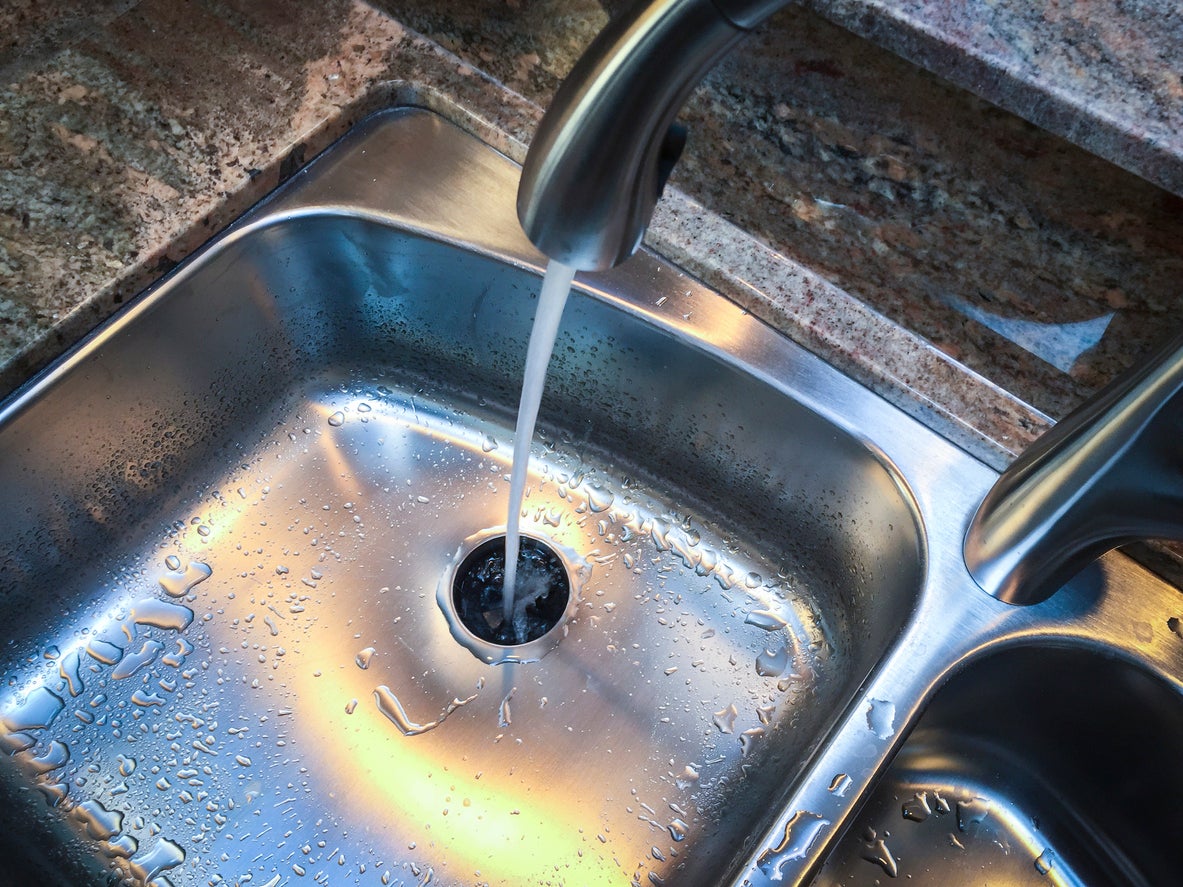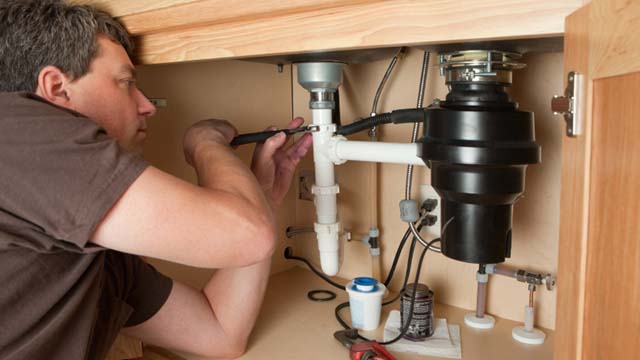Recommended Tips for Fixing a Leaking Waste Disposal Unit
Recommended Tips for Fixing a Leaking Waste Disposal Unit
Blog Article
Right here down the page you will discover a lot of extremely good information around Garbage Disposal Leaking From Bottom.

Garbage disposals are important cooking area home appliances that aid in taking care of food waste effectively. Nonetheless, a leaking garbage disposal can be a frustrating and messy trouble to deal with. Fortunately, lots of leakages can be taken care of conveniently with a few easy steps. In this article, we will certainly go over how to deal with a leaking waste disposal unit efficiently.
Introduction
Waste disposal unit are set up under kitchen sinks and are developed to shred food waste right into smaller items, permitting it to travel through the plumbing system easily. While these gadgets are normally reputable, leakages can happen over time due to wear and tear, loose connections, or damage to the system.
Usual Causes of Leaks in Garbage Disposals
Worn Seals and Gaskets
Seals and gaskets play an important function in avoiding water from dripping out of the garbage disposal. Gradually, these elements can wear away, bring about leaks around the disposal unit.
Loose Connections
The links in between the waste disposal unit and the pipes system can become loosened with time, causing water to leakage out during operation.
Fractures or Holes in the Disposal System
Physical damage to the waste disposal unit, such as fractures or openings in the housing, can likewise lead to leaks.
Determining the Resource of the Leak
Prior to trying to fix a leaking garbage disposal, it is essential to identify the source of the leakage. This can typically be done with aesthetic examination or by performing straightforward tests.
Visual Inspection
Inspect the waste disposal unit system meticulously for any kind of indications of water leakage. Pay attention to areas around seals, gaskets, and link factors.
Checking for Leaks
One method to evaluate for leaks is by running water via the disposal unit and checking for any visible indications of leakage.
Devices and Products Needed for Taking Care Of a Leaking Waste Disposal Unit
Before starting the repair service process, gather the essential tools and materials, including a screwdriver, flexible wrench, plumber's putty, substitute seals or gaskets, and epoxy or patching product for repairing splits or openings.
Step-by-Step Overview to Dealing With a Dripping Garbage Disposal
Turn Off the Power
Before trying any kind of repair services, ensure that the power to the garbage disposal system is switched off to stop the threat of electric shock.
Locate the Leakage
Identify the precise place of the leakage and figure out the cause.
Tighten Links
Make use of a wrench to tighten any type of loose connections between the disposal system and the pipes system.
Replace Seals or Gaskets
If the leak results from used seals or gaskets, get rid of the old elements and change them with new ones.
Patching Fractures or Openings
For splits or holes in the disposal unit, use epoxy or a suitable patching material to secure the damaged location.
Examining the Waste Disposal Unit After Repair Service
As soon as the repair is complete, evaluate the garbage disposal by running water with it to make sure that the leakage has actually been resolved.
Preventive Maintenance Tips to Avoid Future Leaks
To prevent future leakages, it is essential to execute regular maintenance on your garbage disposal. This consists of keeping it clean, preventing placing non-food products or difficult things down the disposal, and regularly looking for leakages or other concerns.
Final thought
In conclusion, taking care of a leaking waste disposal unit is a reasonably uncomplicated procedure that can be completed with fundamental devices and products. By adhering to the steps described in this article and exercising precautionary upkeep, you can keep your waste disposal unit in good working condition and stay clear of expensive repair services in the future.
HERE’S HOW TO FIX YOUR GARBAGE DISPOSAL
WHAT TO DO IF SOMETHING IS STUCK IN YOUR GARBAGE DISPOSAL
If the impeller won’t turn, there’s probably something stuck in the disposal. It could be a steak bone or peach pit, although plumbers report pulling all sorts of inappropriate objects out of disposals, such as bottle caps or aluminum foil. Make sure power to the disposal is off, and look inside to see if you can see the source of the jam.
Never stick your fingers in a disposal. Pull out anything you see with tongs or pliers.
If the disposal still won’t work, it may be time to call a plumber or consider buying a new disposal. GEM Plumbing & Heating is here for all of your garbage disposal needs.
WHAT TO DO IF YOUR GARBAGE DISPOSAL DRAIN IS CLOGGED
Take everything out from underneath your sink and put a bucket or other container under your disposal to catch any water that drains out. Disconnect your disposal from the power supply. If it’s plugged into a wall outlet, unplug it. If it’s hardwired into an electrical box, go to the electrical panel and turn off the breaker for the disposal. Pour ¼ cup of baking soda into the drain, followed by ½ cup of white vinegar. Give the solution a few minutes to fizz and do its work. Look into the disposal with a flashlight to see if you can see an object that might be causing the clog. If you see it, remove it using tongs or pliers. MORE TIPS ON DEALING WITH A CLOGGED GARBAGE DISPOSAL
Never use drain cleaner in a garbage disposal. It can damage the plastic parts inside the disposal. You can also be splashed with the caustic liquid while working to clear the clog. Beware! Never stick your fingers into a garbage disposal. Trust us — not a good idea. In many instances, your dishwasher drains through your garbage disposal. This allows the disposal to grind any large food particles that may be drained out of your dishwasher. There are some jurisdictions, however, where the plumbing code prohibits such a connection. WHAT TO DO WHEN YOUR DISHWASHER DRAINS THROUGH THE DISPOSAL
Run some water in the sink so your plunger has at least a ½-inch of water to create a seal and plunge vigorously up and down several times. You may need to repeat this several times. Run hot water down the drain to clear any residue that remains.

I stumbled upon that page about Why Is while doing research the web. Are you aware of somebody else who is in to the subject? Please feel free to promote it. Thanks a bunch for your time. Visit again soon.
Book Your Installation Report this page